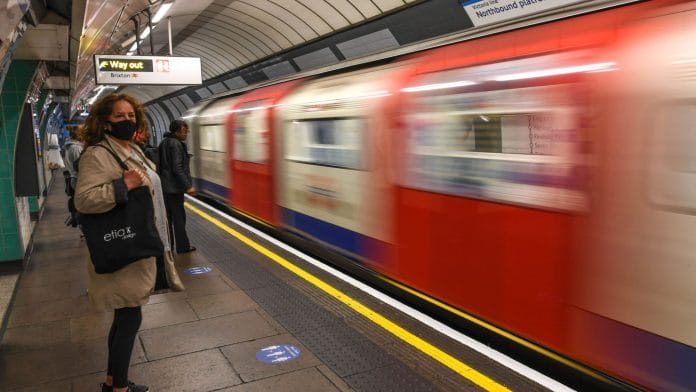London: Coronavirus is now spreading rapidly again across the U.K. for the first time since March, prompting ministers to urge the public to limit social activities.
Government figures put the so-called “R” rate — the reproduction number that shows how fast the virus multiplies — between 1.0 and 1.2, driven by a surge in cases among younger people. The virus is spreading exponentially when R is above 1.
A separate study by Imperial College of more than 150,000 people in England estimated the R number as 1.7 and found the virus is now doubling every seven to eight days.
The R value is the number of people that one infected person will pass the virus on to; cases grow exponentially when the number goes over 1. Government scientists believe the R rate was last above 1 in early March, just before the U.K’s national lockdown.
U.K. Health Secretary Matt Hancock said it underlined the need for people to abide by the law and socialize in groups of no more than six.
“We’ve seen all across the world how a rise in cases, initially among younger people, leads to hospitalizations and fatalities,” he said. “The pandemic is not over, and everyone has a role to play to keep the virus at bay and avoid further restrictions.”
The study by Imperial College and Ipsos MORI estimated that 13 people per 10,000 were infected between Aug. 22 and Sept. 7, compared to four people per 10,000 between July. 24 and Aug. 11.
It said Covid-19 cases were no longer clustering in care homes, as seen in May and June, suggesting the virus is now spread more widely in the community. Infections are increasing across all adult age groups below the age of 65, with higher rates seen in people aged 18 to 24. Infections are highest in Yorkshire and the Humber, the North East and the North West.
“What we are seeing is evidence of an epidemic in the community and not a result of increased testing capacity,” Paul Elliott from Imperial College said.
Prime Minister Boris Johnson is under pressure from his own Conservative members of Parliament to rethink the “rule of six” law, which was unveiled this week.
“It’s time to move to a voluntary system, unless the government can demonstrate otherwise,” former minister Steve Baker told BBC Radio 4 on Friday. “It is time for us to start living like a free people.”
The government’ estimated R rate represents the average situation over the last few weeks, so does not fully reflect any recent changes in transmission that may have been caused by the reopening of schools and more people returning to work. – Bloomberg
Also read: Boris Johnson bans gatherings of more than 6 people as Covid cases rise in UK






